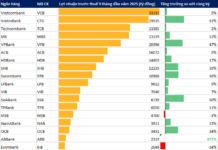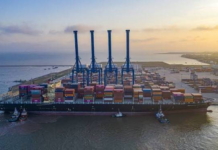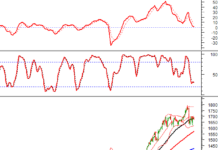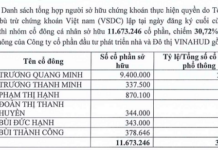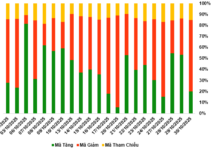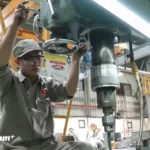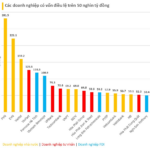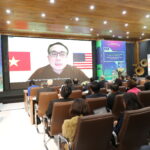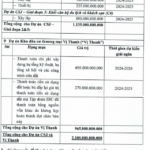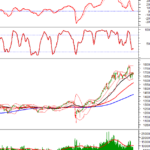Since the end of 2019 and early 2020, SMEs have continuously faced immense challenges. As the Covid-19 pandemic subsided, widespread inflation and a significant decline in consumer purchasing power occurred, followed by disruptions related to geopolitical conflicts leading to supply chain fractures. SMEs, being the most vulnerable, have lost resilience, unable to withstand these challenges.

Currently, there are many policies to support SMEs in borrowing capital, but the summary of the packages is not effective. Due to the lack of stable capital, it is difficult for SMEs to upgrade technology, digitize production processes, and thereby increase profits and keep up with development trends. To help businesses access capital and support policies, policy designs must be concise, direct, and effective…
According to experts, two major issues need to be addressed to help SMEs stand firm and develop strongly in the new era of Vietnam: capital and market expansion, reaching larger global markets.
At the workshop series “Promoting the Role of Vietnam’s Representative Agencies Abroad in Supporting Small and Medium-sized Enterprises in International Economic Integration” held in December 2024 in Ho Chi Minh City, Da Nang, and Hanoi, co-organized by the Ministry of Foreign Affairs and a/b, Ms. Nguyen Minh Hang, Deputy Minister of Foreign Affairs, stated that with their growing strength, Vietnamese SMEs play a crucial role and make significant contributions to the country’s socio-economic development.
“On behalf of the ambassadors, consuls general of Vietnam abroad, as well as 94 representative agencies of Vietnam overseas, I commit to continue accompanying, supporting, and standing side by side with the Association of Small and Medium Enterprises in Vietnam and Vietnamese businesses to promote the development of each enterprise, thereby contributing to the country’s development and realizing its aspirations,” affirmed Ms. Hang.
According to Dr. To Hoai Nam, Vice Chairman and General Secretary of the Association of Small and Medium Enterprises in Vietnam (VINASME), Vietnamese SMEs still face numerous limitations in their integration and enhancement of international capacity, including limited financial resources, lack of management skills and international experience, slow technology innovation and production capacity improvement, difficulties in accessing international market information and permits, lack of a professional legal team, limited participation in global value chains, complex import-export procedures, barriers from non-tariff measures, insufficient connection and support from authorities, and risks from global economic fluctuations…
Mr. Hoang Vinh Long, Chairman of the Vietnam Tea Association, shared a similar perspective by pointing out the challenges faced by small and medium-sized export enterprises in Vietnam.
IDENTIFYING DIFFICULTIES
According to Mr. Long, many businesses are not well-versed in quality standards and lack a deep understanding of customs, traditions, and consumer culture in international markets. These limitations expose enterprises to risks as they penetrate and expand into foreign markets.
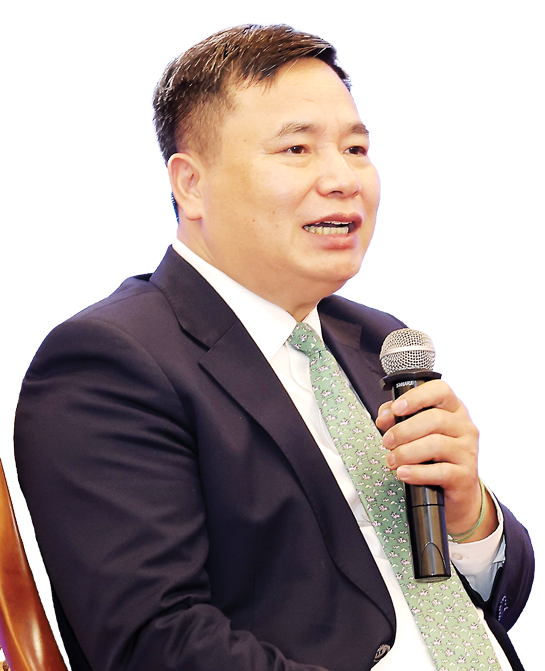
For Vietnam’s tourism industry to continue attracting more international visitors, tourism businesses need access to market and partner information. Therefore, there should be a focal point within the representative agencies to provide immediate information and connections. Simultaneously, it is necessary to combine and coordinate the organization of regular thematic workshops in foreign markets to facilitate effective business networking. The authorities should consider visa exemption policies for more tourist markets. Commercial offices also need to arrange farm trips to explore Vietnam’s tourism potential.
“Small businesses often lack the resources to research and develop markets like larger enterprises. Consequently, they may struggle to grasp and understand the market fully, leading to various risks in their export activities,” Mr. Long shared.
Moreover, the ability of small and medium-sized enterprises to connect with international customers is also very limited. A typical example is the Vietnamese tea industry. Currently, tea exports to Pakistan are growing strongly, reaching 40,000-50,000 tons annually. However, most Vietnamese tea enterprises mainly trade through intermediary traders instead of directly connecting and working with tea importers in Pakistan.
“Directly approaching and negotiating with Pakistani tea importers is incredibly challenging for small businesses. They lack the resources and relationships to establish direct channels with international customers,” Mr. Long illustrated.
Ms. Hoang Thi Lien, Chairwoman of the Vietnam Pepper and Spice Association, stated that in the pepper industry, small and medium-sized enterprises account for an absolute proportion of 100%. In 2024, pepper exports reached a record high of over $1 billion. Despite this impressive achievement, Ms. Lien mentioned that small and medium-sized enterprises, particularly those in the pepper industry, still face countless challenges regarding capital, technology, and human resource quality when aiming to go international.
“We struggle to find markets. Pepper production is mainly for export, so we rely on foreign markets. In the past years, businesses have mostly navigated independently, and we desperately need market information and import regulations,” Ms. Lien expressed.
Currently, market barriers are becoming more stringent. According to Ms. Lien, European countries and the US have over 530 indicators for pesticide residue limits. Small and medium-sized enterprises have to work tirelessly to meet these requirements.
Additionally, commercial fraud and online transactions have increased. Pepper businesses have not yet adapted to cope with fraud in many international markets.
Mr. Tran Ngoc Quan, Commercial Counselor of Vietnam in Belgium, who has closely supported Vietnamese businesses entering major European markets for many years, noted that some Vietnamese SMEs encounter difficulties in commercial negotiations and are prone to becoming victims of international scams due to their lack of experience and tendency to “please” customers excessively.
Furthermore, businesses tend to follow the same path instead of adapting to market demands. To remain competitive, Vietnamese SMEs need to proactively develop customer care strategies, grasp trends, and create products that meet international standards.
According to Mr. Nguyen Van Cuong, Director of the Institute of Legal Science, many Vietnamese SMEs also face challenges in accessing capital and lack management skills, directly impacting their competitiveness.
NEED FOR PRACTICAL AND SPECIFIC SUPPORT
The European market demands that enterprises, especially those in the garment industry, comply with green and sustainable standards, including regulations on labor conditions and a commitment to refrain from using forced labor. Therefore, SMEs need to improve their accounting and labor contracting practices to meet the requirements of intermediary auditing companies and apply technology to enhance management effectiveness.
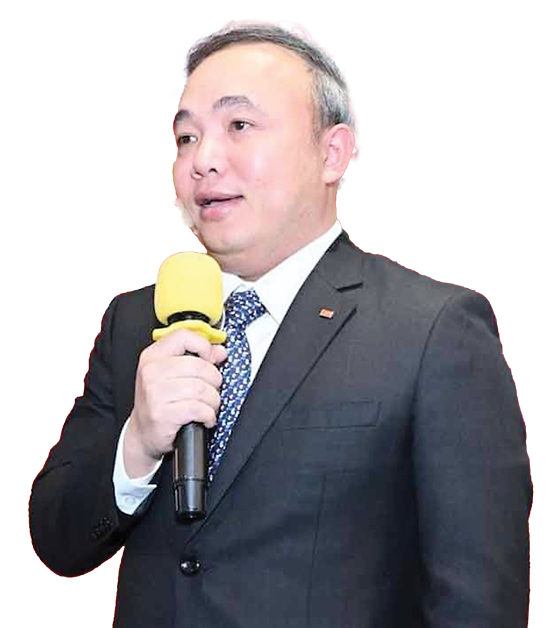
In the past, Vietnamese businesses focused on the southern provinces of China. However, recently, enterprises, especially small and medium-sized ones, have paid more attention and invested more in the billion-people market. To effectively penetrate the Chinese market, businesses need to thoroughly study and research all aspects of the country before entering. This is because China’s consumer trends are changing daily, and enterprises must adapt to survive and meet market demands.
From a business perspective, Ms. Pham Thi Bich Phuong, CEO of Sao Khue Food Company, shared that the European market holds great potential and opportunities but is also full of challenges for small and medium-sized enterprises. Despite having quality products, accessing and conquering the EU market is not easy.
“My company spent almost a year completing the export certifications, which was time-consuming and financially draining. Additionally, participating in international trade promotion events provides significant opportunities but also imposes a financial burden, as each attendance can cost over VND 100 million per person,” Ms. Phuong informed.
At the same time, Ms. Phuong expressed her hope for more support from Vietnamese representative agencies abroad to help SMEs overcome difficulties, reduce costs, and enhance competitiveness in the international market. These concerns are significant challenges for businesses aiming to access the “big pie” in the global market.
Ms. Nguyen Thi Van Anh, Chairwoman of the Board of Directors of Tam Nong Vietnam Company, stated that although they have been striving to understand and apply green and sustainable standards in their production processes, the company still faces difficulties and challenges in meeting these requirements. Green and sustainable standards are becoming increasingly complex and stringent, especially when they need to conform to different international markets.
Currently, the company must invest resources in technology upgrades and constantly update new regulations. However, accessing information about international standards, particularly specific requirements from major markets, remains limited. This situation hinders the company from establishing a systematic and long-term plan to meet the necessary criteria.
The Evolution of Vietnam’s Mechanical Industry: Immense Potential Yet to Hatch a “Leading Crane”
The mechanical engineering industry has taken strides in enhancing domestic content, serving as a catalyst for the growth of other industries and the economy. This sector has directly and indirectly created employment opportunities for millions, setting a precedent for the development of various sectors.
State-Owned Refinery to Join $2 Billion Capital Team, Joining Ranks with Hoa Phat Dung Quat, MB, and Vietinbank
Introducing the top 19 power players with a capital of over $2 billion. This elite group comprises a diverse range of businesses, including 9 state-owned enterprises, 4 foreign-invested companies, and 6 private sector giants. Each of these powerhouses boasts a substantial financial backing, reflecting their significant influence and impact on the economic landscape.
“Vietnamese SMEs: Ready to Take on the World?”
As a representative of trade affairs in Vietnam’s key export markets, now is deemed an opportune time for small and medium-sized enterprises (SMEs) in the country to expand their global reach.










